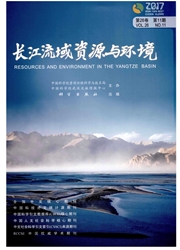

 中文摘要:
中文摘要:
我国是世界水能资源最为丰富的国家,但目前开发利用率仅为21%。当前我国正处于全面建设小康社会的重要战略机遇期,能源需求量持续增长,水电开发迎来了前所未有的发展机遇,但也面临水库移民、生态环境等难题。在对水库的温室气体排放、大型水电是否属于可再生能源、水库移民及库区可持续发展等问题进行分析研究的基础上,应用经济学的外部性理论对水电项目进行了政策分析,认为国家在政策上应大力鼓励支持开发水电,同时要加强严格监管,使其担负起所应承担的社会责任,促进地方经济持续发展和社会全面进步,并提出了水电开发与经济、社会、环境协调发展模式。
 英文摘要:
英文摘要:
China is one of those countries rich in hydropower resources. However, the rate of hydropower harness is no more than 21% in China. China is at an important strategic stage of constructing a well-off society, which has triggered an increasing demand for energy. So hydropower development has seen an unprecedented opportunity and, at the same time, has to tackle relevant problems such as reservoir resettlement,ecology,environment,etc. Based on the in-depth research on such issues as the greenhouse gas emission of the reservoir, whether large scale hydropower belongs to renewable energy, reservoir resettlement and the sustainable development of reservoir area, this paper makes an analysis on the externalities of the hydropower project with the application of the theories of economics, and presents a coordinate mode for the development of hydropower, regional economy and community as well as the protection of ecology and environment.
 同期刊论文项目
同期刊论文项目
 同项目期刊论文
同项目期刊论文
 Theoretical research on construction quality real-time monitoring and system integration of core roc
Theoretical research on construction quality real-time monitoring and system integration of core roc Enhanced NURBS modeling and visualization for 3D large geo- engineering applications: An example fro
Enhanced NURBS modeling and visualization for 3D large geo- engineering applications: An example fro Dynamic simulation and optimization approach to construction diversion of hydraulic and hydroelectri
Dynamic simulation and optimization approach to construction diversion of hydraulic and hydroelectri 期刊信息
期刊信息
